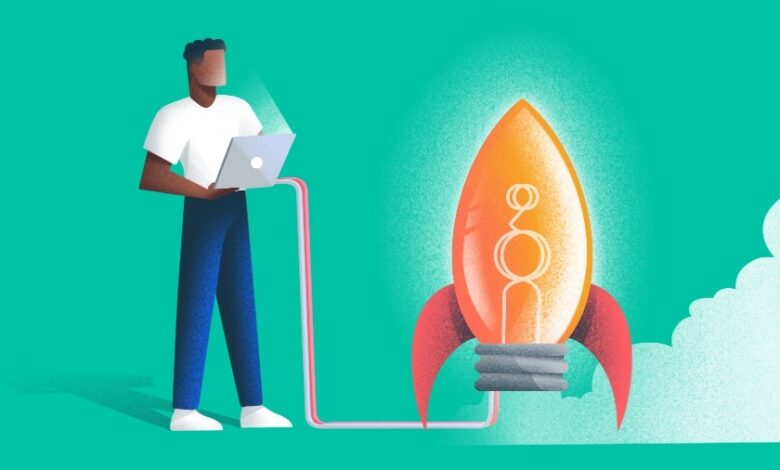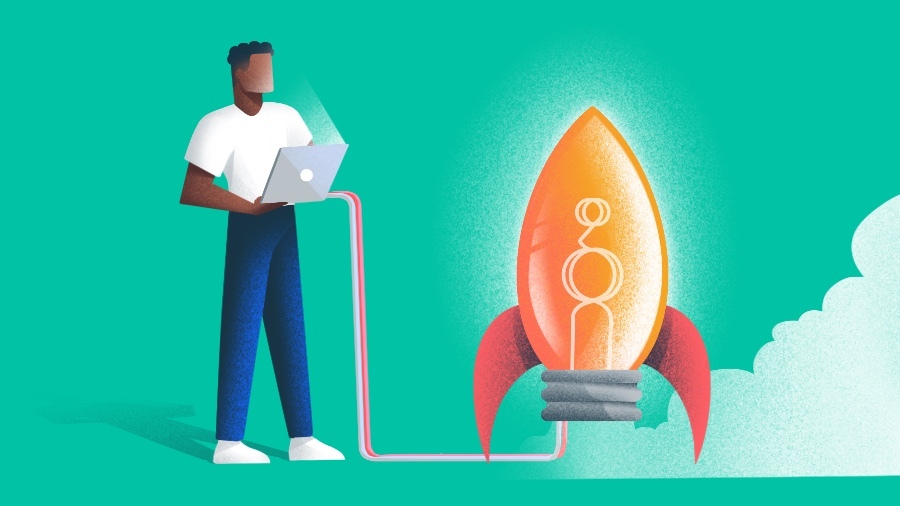3 Tips To Help You Defy The Odds As An Entrepreneur

Every day, I’m joined by CEOs and entrepreneurs sharing the ups and downs of business building. The biggest question on all of their minds: What do I need to do for my business not just to survive, but thrive?
Many founders need help, as 50% of startups do not reach the five-year milestone. A recent post by Bessemer Venture Partners noted that, while all companies will have an initial spark, not all of them can sustain the flame to build ongoing success. Entrepreneurs who can maintain the flame demonstrate the “resilience, perseverance, innovation, and ownership mindset necessary for long-term success.”
So what can entrepreneurs do to sustain this flame? At my Florida-based startup community, Embarc Collective, we’ve seen a 96% survivability rate, despite intense market changes, a global pandemic and a massive decline in venture funding.
Here are three of the biggest commonalities I’ve seen contribute to the long-term success of those companies over the years.
A desire to listen
The pace of learning when you’re building a business is intense. Every customer discovery call, team meeting, roadmap and board update delivers an outsized volume of data points that can improve what you’re doing.

While every entrepreneur might see this information, they aren’t necessarily listening to it. To listen to this information means transforming it into actions that will improve your business in the long run.
An entrepreneur who listens and transforms is curious. And as Walmart founder Sam Walton once said: “Curiosity doesn’t kill the cat, it kills the competition.”
Your curiosity — your desire to listen and change and grow — is your biggest asset and competitive advantage.
A curious entrepreneur is eager to get inside customers’ minds. In the early days, entrepreneurs who have a genuine curiosity about how to make their customers’ lives better tend to have a faster path to product-market fit. They are continually learning what matters most to their users, and acting on it.
Because of this, these entrepreneurs are often quick to adapt and grow. They’re able and willing to make real-time modifications based on what they’re learning about their customer and their business. Their roadmaps are written in pencil, not pen. They don’t hesitate to revisit plans when customers begin pointing them in a new direction.
Furthermore, this type of entrepreneur is often an expert at context-switching. Due to the nature of their jobs, founders are often required to wear a lot of hats. This means being bombarded by a variety of inputs and tasks over the day, and the only way to navigate them is by mastering your mind’s filing cabinet.
The ability to context switch is an incredible determinant of entrepreneurs who can cut it and those who can’t. The strongest entrepreneurs can hold all that information at once, and know how to sort it in real time to inform productive iterations in products, messaging and processes.
A detachment to the ups, an opportunity with the downs
The reality of being a founder is that, for every one thing that goes according to plan, 10 things will not. A strong entrepreneur, one who can build a thriving business, has a healthy relationship with these inevitable ups and downs.
It’s important to have a balance — celebrate your wins (and acknowledge your losses), but don’t let either define you. When something goes well, recognize it, and don’t be shy to celebrate with your team. These achievements keep motivation high and validate that you’re onto something big.
However, it’s important to recognize that those wins can be fleeting. You can’t let them define you or your business. Entrepreneurs who dwell in the wins of the past can miss the information and learning moments that guide them where they need to go in the future.
As for the downs, it’s important to remember that challenges fuel iterations. A good CEO friend of mine often says, “The challenges are happening for you, not to you.”
The downs, the obstacles and the bad news all contribute to a better, stronger future so long as you know what to do with them.
Lean into the downs, and use them as an opportunity to learn, evolve and grow. You’ll be thankful to those moments in the long run.
An endurance mindset
Building a company is an endurance sport, and you should treat it as such to see success. You are an athlete of sorts, and to perform you need to take care of your health and wellness in all aspects. Founders are a core asset to the success of their business, and they need to be taken care of in the same way any other asset would be. A burnt-out founder leads to a burnt-out business.
Furthermore, it’s important, but difficult, for founders to acknowledge that they are not the brand. For a company to scale, a brand needs to take on an identity of its own, outside of the founder. Otherwise, everything the brand does is limited by the perspective and the abilities of the founder or founding team. In the same way, you let your child grow up to be their person, you need to let your brand become its entity outside of you.
Ultimately, it’s important to remember that building a business isn’t linear. There will be highs and lows and everything in between. By sticking with entrepreneurs and helping them develop the skills needed to create long-term success, your business can and will flourish.
Lakshmi Shenoy is the CEO of Embarc Collective, a startup hub located in downtown Tampa, Florida. Before moving to Tampa Bay, Shenoy served as the vice president of strategy and business development at Chicago-based incubator 1871. Prior to 1871, she worked for several top global media and advertising brands. She has a bachelor’s degree in sociology from The University of Chicago and an MBA from the Harvard Business School. She currently serves on the board for The Florida Aquarium and Junior Achievement of Tampa Bay.
Illustration: Dom Guzman


Stay up to date with recent funding rounds, acquisitions, and more with the
Crunchbase Daily.



